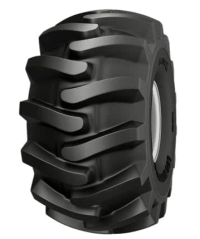Skidder
-
 Availability: 10More Info...More InformationAdditional Info-Bearing-Bolt Pattern-Box Quantity-BrandPRIMEXCenter Bore in/mm-ConstructionBIASCountry of Origin-Diameter16.9Finish-Hub Length-Industry CodeLS2Load Index150Load/Speed Index150A6Machine Fitment/Application-Max Load Capacity (Lbs)7385Max PSI47Mounted Diameter (Inch)59.2Pattern/PositionLOGMONSTER LS-2Ply/Load Index/Star Rating16Ratio-Rim Diameter30Rim Size30X15Rim Width15Rolling Circumference177.1Section Width27.6Size16.9-30Speed Rating/Speed (MPH)A6/20Static Loaded Radius (inch)27.6StyleLOGMONSTER TTSurface / Terrain-Tread Depth (32nds)63/32Tread Width-Tube Type / TubelessTUBE TYPETypeFORESTRY LS2Valve-Weight (Lbs.)347.000000Wheel Back Spacing in/mm-Wheel Front Spacing in/mm-Wheel Offset in/mm-
Availability: 10More Info...More InformationAdditional Info-Bearing-Bolt Pattern-Box Quantity-BrandPRIMEXCenter Bore in/mm-ConstructionBIASCountry of Origin-Diameter16.9Finish-Hub Length-Industry CodeLS2Load Index150Load/Speed Index150A6Machine Fitment/Application-Max Load Capacity (Lbs)7385Max PSI47Mounted Diameter (Inch)59.2Pattern/PositionLOGMONSTER LS-2Ply/Load Index/Star Rating16Ratio-Rim Diameter30Rim Size30X15Rim Width15Rolling Circumference177.1Section Width27.6Size16.9-30Speed Rating/Speed (MPH)A6/20Static Loaded Radius (inch)27.6StyleLOGMONSTER TTSurface / Terrain-Tread Depth (32nds)63/32Tread Width-Tube Type / TubelessTUBE TYPETypeFORESTRY LS2Valve-Weight (Lbs.)347.000000Wheel Back Spacing in/mm-Wheel Front Spacing in/mm-Wheel Offset in/mm-
Tires for Forestry Machines like Skidders, Grapples & More
Forestry operations present a unique set of challenges, not least of which is navigating the rugged and unpredictable terrains of the natural world. The right skidder & forestry tires can make a significant difference in the efficiency, safety, and success of forestry tasks. This article delves into the various types of tires designed specifically for forestry machines, ensuring optimal performance in this demanding industry.
Key Features of Tires for Forestry Use
- Reinforced Sidewalls: To withstand rough terrains and potential punctures from sharp objects, forestry tires often come with reinforced sidewalls.
- Deep Tread Patterns: These ensure maximum traction, especially on wet or muddy surfaces, typical in forest environments.
- Cut and Tear Resistance: Specialized compounds and designs make these tires resistant to cuts, tears, and other potential damages from forest debris.
- High Load Capacity: Forestry machines often carry heavy loads, and their tires are designed to bear these weights without compromising performance.
Benefits of Using Specialized Forestry Tires & Skidder Tires
- Enhanced Durability: These tires are built to last in challenging conditions, ensuring longer operational life and reduced downtime.
- Safety: With better traction and resistance to punctures, these tires enhance the safety of forestry operations.
- Cost Efficiency: While they might have a higher upfront cost, their durability and performance can lead to long-term savings.
- Optimized Performance: Designed specifically for forestry tasks, these tires ensure that machines operate at their best in forest terrains.
Comparative Forestry Tire Analysis
- Flotation Tires vs. Standard Forestry Tires: Flotation tires are wider and designed to "float" on soft surfaces, reducing soil compaction. Standard forestry tires, on the other hand, are more about durability and traction in varied terrains.
- Radial vs. Bias Ply: Radial tires offer better heat dissipation and can be more flexible, providing a smoother ride. Bias ply tires, with their layered construction, might offer more resistance to punctures in rough terrains.
Applications and Suitable Terrains for Forestry Tires
- Logging: Skidder tires help navigate through dense forests with heavy logs that require tires that can handle both the weight and the terrain.
- Site Preparation: Before planting or other forestry activities, machines need to prepare the site, and the right tires ensure they can move efficiently.
- Transport: Moving logs or other forestry products over longer distances, often on uneven terrains, demands durable and reliable tires.
- Reforestation: Machines involved in planting new trees or maintaining young forests benefit from tires that offer both maneuverability and minimal soil disturbance.
Maintenance and Care Tips for Forestry Tires & Skidder Tires
After each operation, inspect tires for any signs of damage or punctures. Maintain the recommended tire pressure to ensure optimal performance and longevity. Rotate the tires periodically to ensure even wear. When storing machines or tires, keep them in a dry place, shielded from direct sunlight.
FAQs
-
How often should forestry tires be replaced?
- This depends on usage and conditions, but regular inspections will help determine when a tire is nearing the end of its operational life.
-
Are chains or tracks better for forestry machines?
- Both have their advantages. Chains can enhance traction and protect the tire, while tracks can distribute weight more evenly and reduce soil compaction. The choice often depends on the specific task and terrain.
-
Can standard construction tires be used for forestry?
- While they might work in some conditions, forestry tires are specially designed for the challenges of forest terrains and tasks, making them a more reliable choice.
Tires for forestry machines are more than just rubber and air; they're a fusion of engineering and design tailored to meet the challenges of the forestry industry. By understanding the different types available and their specific benefits, professionals can equip their machines for success, ensuring that even in nature's toughest terrains, their operations move forward smoothly. Investing in specialized forestry tires is an investment in efficiency, safety, and the future of our forests.
